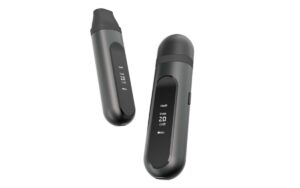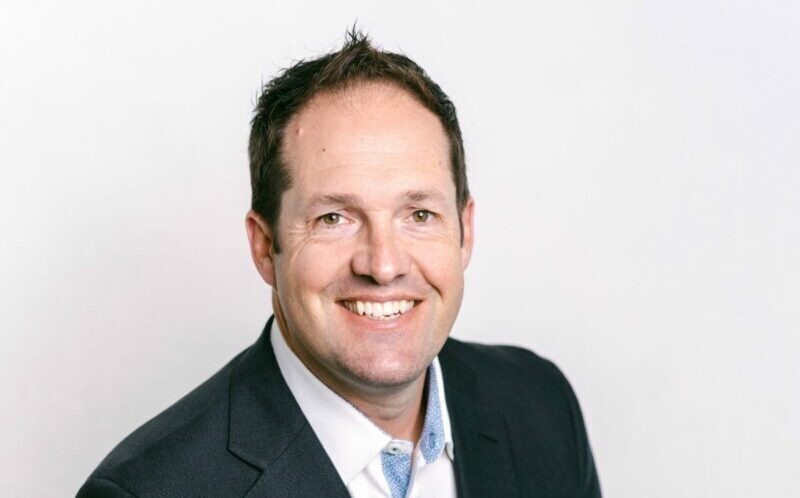Respira Technologies Appoints CEO
Aerosol-focused biotech startup Respira Technologies is gearing up for the start of its first human clinical trials and has appointed Brian Quigley as the new chief executive to lead the company through this important phase.
Quigley previously served as Respira’s chief operating officer after joining the Century City company in July 2020. He spent 16 years with Altria Group, during seven of which he served as president and chief executive of the tobacco company’s smokeless and innovative products/vapor businesses. Altria ranked No. 165 on this year’s Fortune 500 list.
Respira’s former chief executive, Mario Danek, who founded the company, will be transitioning to the role of chief technology officer. The strategic move will allow Danek to focus on the technology behind Respira, giving special focus to refining and developing the company’s inhalation device, RespiRX, across multiple potential indications that include the treatment of asthma, potential vaccine delivery, pain management, nicotine replacement therapy and inhalable insulin.
New role
The change in executive structure will involve Quigley retaining some of the same duties he had as chief operating officer, such as overseeing commercial strategy, while tending to new responsibilities like fundraising and preparation for filing Food and Drug Administration submissions.
“Our ability to get this application developed and approved by the FDA is now being driven by (me) and it frees up Mario to continue to expand the (intellectual property) portfolio and expand other applications of the technology,” Quigley said.
The company is engaged with the FDA’s Center for Drug Evaluation and Research (CEDR) to pursue a combination product authorization for the RespiRX device and the drug that will be delivered through the device. Respira says the device and drug, which has nicotine as an active ingredient, would be the first inhalable prescription smoking-cessation therapy.

“Although both (the drug and device) may be approved separately, the act of combining the two sides means that you have a product and you’re (conducting) studies to show that the two products can work together with zero or minimal side effects,” Ahmed Enany, president and chief executive of the Southern California Biomedical Council, said.
A regional biotech company that has already navigated the FDA’s combination product-authorization process is Westlake Village-based MannKind, which produces an inhalable, dry-powder insulin that can be administered by a handheld device. The company’s road to FDA clearance took years to complete.
“The challenge there was that their clinical trials were turned down by the FDA two times, and they had to do a longitudinal study in order to show that the (treatment) did not create cancers or other long-term pulmonary issues,” Enany said.
Respira has spent a significant amount of time talking to smokers who have tried to quit, failed, and are looking for new therapies, according to Quigley.
“They’re urgently yearning for a new way because they’ve tried everything,” he said.
“They’ve tried the gums, they’ve tried the patches, they’ve tried the other prescription products and ultimately, they fail and they go back to smoking.”
Quigley added that Respira is focused on developing RespiRX to provide high efficacy rates.
Small, portable device
The RespiRX device is the brainchild of Danek, who sought to create a small, portable, battery-operated therapeutic device. Another part of the device includes a cartridge filled with a liquid treatment that could be easily put in and taken out.
Now, ahead of its developmental and regulatory journey, the device is a pocket-size vibrating mesh nebulizer with a digital interface that keeps track of doses. The RespiRX also will also have Bluetooth-enabled mobile app functionality and will not require cleaning or maintenance.
The company’s next step with the FDA is gaining approval for an investigational new drug submission, which should occur next year according to Quigley. Respira is prepping for human clinical trials to begin early in summer of next year and run into 2024.
In 2025, the company expects to receive approval for its new drug application.
With such a treatment being developed in the company’s pipeline, the need for capital has followed suit. As of late August, Respira raised $12 million in funding. The company received backing from Poseidon Asset Management, Evolution VC Partners and DG Ventures, according to its website.
“We constantly have to balance our investment dollars, make sure we’re allocating our capital to collect the data we need and continue to get closer to each of the next milestones we have to go through with FDA,” Quigley said.
He added that the company is in the process of closing a Series A funding round.
According to a document filed Aug. 5 with the Securities and Exchange Commission, Respira is raising $24.1 million in funding, with nearly $6 million left to be raised. The names of investors were not disclosed.
“Either they will close the round at $24 million or they (will) keep it open to raise the extra six,” Enany said. It is unclear if the $24 million is explicitly for the Series A round.
Further details of the funding round are expected to be shared in the next month, according to Quigley.
“Then there will ultimately be another raise that will probably launch in 2023 to fund our phase two and phase three human clinicals through approval,” Quigley said.









